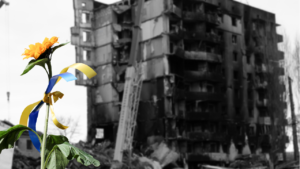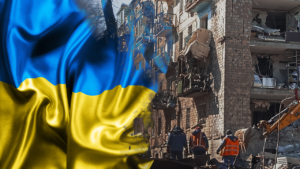With the death toll from China’s recent massive earthquake expected to rise to nearly 50,000 people, the world has offered and Chinese leaders have accepted outside assistance. Western experts, for example, are monitoring some Chinese nuclear plants for damage that might have been created during the temblor. Other forms of aid from rescue units to money are also pouring in. One unexpected source of funds has been from the Chinese people themselves [“Chinese Open Wallets for Quake Aid,” by Maureen Fan, Washington Post, 16 May 2008]. That may not sound surprising to outsiders (after all, who doesn’t want to help when they see neighbors in need?), but as the article’s sub-title explains, individual giving is rare “in a Society Long Under Sole Care of the State.” This is not the first large natural disaster that has occurred since the Communists came to power, so why are the Chinese people opening their wallets in record numbers? Because, thanks to globalization, they can. Fan reports:
“At the headquarters of the Red Cross Society of China, volunteers turned a boardroom into a makeshift cashier’s office Thursday, sending tens of thousands of fluttering bank notes through counting machines and handing receipts to people like Cai Lili, 30, who stood in long lines with bricks of cash to donate to earthquake relief efforts. Since a massive earthquake struck Sichuan province and surrounding regions three days ago, Chinese have donated $192 million to help their countrymen, according to China’s Civil Affairs Ministry. The fundraising has come as officials have issued a rare public appeal for cranes and rescue equipment, hammers and shovels, bandages and medicine. In scale, the financial contributions have been unprecedented in China, which for decades taught its citizens that the state and the state alone would take care of them from cradle to grave.”
This demonstration of giving is a positive sign for the Chinese government, its economy, and the rising quality of life the ordinary Chinese citizen. You can’t give what you don’t have. The Communist Party in China has been so concerned about maintaining control that it has banned most organizations that operate independently from the government, including charitable ones.
“There is no organized philanthropy here, and independent nongovernmental organizations are banned. Ordinary Chinese and famous Chinese, including Houston Rockets center Yao Ming, have simply decided to open their wallets to help the estimated 10 million people affected by the earthquake. Many have given as individuals in addition to or instead of giving at the office, saying they were making a statement about their gifts coming from the heart. ‘I wanted to separate the collective action from the individual action,’ said Cai, a clerk with the Beijing special armed police, who earlier gave $14 at the office, then stood patiently in line Thursday to donate $71 in her daughter’s name. ‘Although in this diverse society, there are many conflicting values, in the face of disaster we stand together.’ On the opposite side of a table stood Zhao Shuangying, 48, sunglasses hanging from the collar of his pink polo shirt, belly protruding over a pair of white loafers. ‘It’s very simple. I cannot go to Sichuan, so I came here to help,’ said Zhao, the owner of a technology company. In his hands were several bricks of notes totaling more than $14,000. ‘I want to show that it’s me who’s donating. It’s not connected with anybody else. I’m donating in my own name,’ he said.”
This show of philanthropy, mingled with individualism, is another indication of how much things have changed over the past few decades. Considering China’s long history and how slowly things there normally change, things are now moving relatively fast. The involvement of the people shows a growing feeling of confidence, both in their economic well-being and in the ability to express their views.
“In the days before the ascent of private enterprise, the government compensated the disabled and gave medicine to the sick. And while farmers were often called on to help in government campaigns against insect infestations or rising floodwaters, the paternalistic nature of Chinese society made it difficult to imagine individuals stepping forward to lead or to hold officials accountable for relief efforts. The quake that struck central China, however, has inspired a completely different outlook among ordinary Chinese, many of whom belong to the country’s growing middle class. The outpouring of support was partly in response to the unusually open news coverage of the earthquake, especially compared with the limited state-controlled coverage of previous disasters. This time, heartbreaking images, dramatic rescue accounts and humble requests for help have been the subject of nonstop live broadcasts, lengthy online postings and a large display in the lobby of the Red Cross building.”
Fan reports that because the government has for so long monopolized every aspect of public life, a real gap in civil society exists. By that she means the ability of ordinary citizens to unite to carry out necessary social activity. The Merriam-Webster Dictionary defines one meaning of civil this way: “of, relating to, or involving the general public, their activities, needs, or ways, or civic affairs as distinguished from special (as military or religious) affairs.” The rise of the “general public” in China is heartening to see. As one observer noted, the Chinese general public has longed for a role in civil society.
“Experts said the gifts fill an enormous need in a country that does not yet have a fully developed civil society. ‘The Chinese value of helping others is never a problem for the people. The only problem is that there are institutional obstacles that have stopped them from showing this,’ said Liu Junning of the Chinese Cultural Research Institute. ‘There are no independent NGOs in China; even the foreign NGOs working in China have to register with the government. Real NGOs are more experienced in encouraging ordinary people to help and also in rescue work.’ In an acknowledgment that many Chinese mistrust the way the government doles out financial aid, officials have promised to allow public supervision of how donation funds are spent and to submit to an audit process at the end of the relief effort, ‘lest misappropriations occur,’ said Wang Zhenyao, director of disaster relief with the Civil Affairs Ministry.”
This rush to help also underscores a new Chinese nationalism that worries some outside observers. They fear that it will turn from simply being proud of being Chinese into something more belligerent. The fact that outside help is being sought and accepted, might help demonstrate that the world is not anti-Chinese and that the protests that have followed the Olympic torch have more to do with human rights than ethnicity.
“China is also accepting financial aid from other governments. Taiwan, the self-ruled island that Beijing considers a part of China, promised $65 million. Saudi Arabia has pledged $50 million in cash and $10 million in relief materials. The U.S. ambassador to China, Clark T. Randt Jr., presented a $500,000 check from the U.S. Agency for International Development as an ‘initial contribution.’ Yet it is the public donations that have been notable here. ‘China has been through such rapid economic development in the last 30 years. So now it can raise such an impressive amount in such a short time,’ said Qian Gang, author of a book about the 1976 Tangshan earthquake, which killed 250,000 people, a death toll that was a state secret for many years. ‘Thirty years ago, it would have been impossible to imagine this.'”
Although it is too soon to dismiss a rising Chinese security threat, the signs continue to be mostly positive that the future is more likely to involve economic competition than military conflict. As Qian Gang said, “Thirty years ago, it would have been impossible to imagine this.” That is the magic of globalization when it works.




